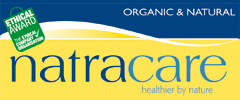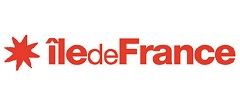NGOs urge REACH Committee to vote for better protection of European citizens
Nine NGOs urge the REACH Committee members in their letter to support the identification of four phthalates (DEHP, DBP, BBP and DIBP) as endocrine disrupting chemicals and to reject the authorisation for the use of DEHP in recycled consumer articles.
14.03.2016 |

The meeting of the REACH Committee takes place on 16-17 March. Download the full letter as pdf file here.
Brussels 11 March 2016
Dear Sir/Madam,
We would like to draw your attention to two decisions regarding the exposure of people and the environment to four phthalates that will be voted on during the next REACH Committee on 16-17 March. These decisions will have particular implications for vulnerable populations such as babies in the womb and young babies and children.
We would like to ask you to support the Commission’s proposal to identify four phthalates (DEHP, DBP, BBP and DIBP) as substances of very high concern (SVHCs) according to Article 57(f) of REACH due to their endocrine disrupting properties and consequent implications for human health, and to reject the Commission’s proposal to grant authorisation for the use of DEHP in consumer articles made with recycled PVC.
Support the identification of four phthalates (DEHP, DBP, BBP and DIBP) as endocrine disrupting chemicals (EDCs)
It has already been agreed that DEHP will be listed as an EDC for the environment (REACH 57f) in addition to its reprotoxic properties (REACH 57c). During this meeting, Member States will vote on whether these four phthalates shall be listed as EDCs due to their human health effects.
Member States have already unanimously agreed in the Member State Committee (MSC) that these four substances have endocrine disrupting properties for environment and the majority of Member States agreed that as the level of concern over these effects on human health is equivalent, the four phthalates should be listed according to Art 57(f). However, four Member States had objections to their identification as SVHCs according to Art 57(f) as they are already included in the Candidate List (and authorisation list) as substances that are toxic for reproduction (category 1B). The Commission's proposal notes that Article 57 does not preclude identifying a substance as being of very high concern based on the same effect on human health several times, in order to specify the mode of action. In fact, other chemicals are listed as carcinogenic and mutagenic, and this is not considered double counting.
We agree with the majority of Member States and the Commission on the importance of specifying the mode of action of these phthalates as endocrine disruptors by identifying them as SVHCs according to Art 57(f), as this would better reflect existing scientific knowledge on these substances.
Listing DEHP, DBP, BBP and DIBP as EDCs for human health, as compared with only listing them as reprotoxicants, will lead to different risk management considerations in the REACH authorisation and restriction processes. For example, the REACH Review of how EDCs should be assessed noted that “it may be difficult (albeit not impossible) to determine a safe threshold with reasonable certainty for endocrine disruptors, taking into consideration all uncertainties related to EDs”.
Although the deadline for submitting applications for authorisation for these substances has already expired, Denmark and ECHA will soon submit a restriction proposal for these four substances, in order to avoid the exposure of people and the environment through imported articles. The identification of the four phthalates as EDCs for human health is a crucial consideration in this upcoming restriction process because as EDCs for human health any level of exposure would constitute a risk to be addressed.
Therefore, identifying whether a reproductive toxicant is also an EDC is very useful as it further informs how these chemicals should be dealt with.
Reject authorisation for the use of DEHP in recycled consumer articles
Vinyloop Ferrara, Stena Recycling and Plastic Planet have applied for authorisation of the use of DEHP in recycled soft PVC-containing articles. Granting authorisations for these applications would not be in keeping with the provisions of Title VII of REACH, in particular Articles 60, 62 and 64 of REACH and would undermine the main objective of REACH “to encourage and [...] to ensure that substances of high concern are eventually replaced by less hazardous substances or technologies where suitable economically and technically viable alternatives are available”.
The risks related to the uses of DEHP are not adequately controlled as RAC has clearly stated in its opinion.
There are suitable alternative substances and technologies. As highlighted in the SEAC's opinion, the applicants, when providing their analysis of alternatives, ignored alternative materials, substances and techniques claiming that they cannot produce the alternatives, even though authorisation is sought for many downstream uses, not for manufacturing. Furthermore, DEHP has, to a large extent, already been replaced by other plasticisers and materials. During the public consultation, manufacturers of alternatives as well as downstream users applying these alternatives have provided overwhelming information which shows that readily available and technically and economically feasible alternatives do exist.
The applicants could not demonstrate that the socio-economic benefits of continued use outweigh the risk to human health or the environment. SEAC’s opinion confirms that there were significant deficiencies in the socio-economic analysis presented by the applicant, including the lack of any health impact assessment identifying the remaining risk to workers’ health.
Therefore, the legal requirements of Article 60(2) and 60(4) are not met and the authorisation must not be granted.
We also would like to recall to your attention the EU Parliament’s Resolution of 25 November 2015 calling on the Commission to reject the applications for authorisation for the formulation of recycled soft PVC containing DEHP.
You can find further details regarding the procedural and substantive flaws of the ECHA Committees’ opinions on DEHP in a letter sent to the Commission by 55 civil society organisations and in the EEB's report "A Roadmap to revitalise REACH”.
As you can see, the decisions that you will take during next REACH Committee will have a substantial impact in reducing the exposure of people, including vulnerable populations such as babies in the womb and young babies and children, and the environment to these well-known toxic substances.
These decisions will also either reflect the spirit of the REACH law, or contradict its main purpose. We therefore call upon you to oppose the authorisation.
Yours sincerely,

Jeremy Wates,
Secretary General of the European Environmental Bureau
On behalf of:
CHEM Trust
ClientEarth
The Danish Ecological Council
The European Environmental Bureau (EEB)
Friends of the Earth Germany-BUND
Health and Environment Alliance (HEAL)
Health Care Without Harm (HCWH) Europe
Pesticides Action Network-Europe (PAN Europe)
Women in Europe for a Common Future (WECF)


































